Do you want to make $15,000 teaching in Korea in 1 year? Yes, you! Are you bored of office life, just graduated uni, or simply crave a life in the incredible country that is Korea? Then you’re in the right place because I’m going to tell you how you can make loads of money teaching in Korea.
But why should you read what I’ve got to say about this? Because I’ve been teaching in Korea for 5 years and I’ve made more than $15,000 in 1 year… for several years! And I’ve been able to live an incredible life of adventure, exploration, new experiences, friendship, self-discovery, and so, so much more.
Now it’s your turn. If you want to stop struggling to save enough for that dream holiday, and instead want to save loads of money in a short time, then read this great guide about how to make money teaching in Korea. You won’t regret it, and it might lead you on an even bigger adventure in the future…
In this article I’m going to tell you all the secrets about an incredible opportunity to make money teaching in Korea that not only pays well, it will also be a life-changing experience.
If you want to know more about the wonderful and enriching experience that is teaching in Korea, then check out this guide to how to get a job on the EPIK Program and why it’s the best option.
Read more:
Teaching English In Korea With EPIK
Are you ready to embark on an unforgettable journey to the Land of Morning Calm? Do you want to slash your student debts, save for that dream backpacking holiday, or earn enough cash to start thinking about your own place to live?
Read on to see how you can save $15,000 teaching in Korea.
Korea Essentials:
Here are some of my favourite resources that will help you save time and money on your journey to Seoul:
Flights To Korea:
Trip.com | JetRadar
Hotels In Seoul:
Myeongdong | Hongdae | Gangnam
Recommended Tour Companies:
Klook | Trazy | Get Your Guide | Voyagin
Travel & Tour Passes:
T-Money Card | Discover Seoul Pass
Internet / Mobile:
4g Sim Card | Portable 4g WiFi
Airport Transportation:
AREX Train Ticket | Incheon Airport Pickup
Follow Me On Social Media:
Disclaimer: This site contains affiliate links and I may earn commission for purchases made after clicking one of these links. Affiliate Disclaimer

Can I Really Make $15,000 Teaching In Korea In 1 Year?
Can you really make that much in just one year?
Absolutely! You can make $15,000 teaching in Korea in just 1 year!
And this isn’t just available to one or two chosen individuals, there are literally thousands of people in Korea doing exactly this each year. Some come for one year and go off to return to their own countries, others (like me) stay for longer and earn even more.
So, how can I do it?
Well, there are several ways. The best of them is by teaching English in Korea through the EPIK Program. I’ll go into that in more detail soon.
Why should you believe me when I tell you that you can make $15,000 teaching in Korea? Because I’ve done it myself (and earned a lot more than just $15,000!). Keep reading to see more about my experience as ‘Joel Teacher’ in Korea.

My Experience Teaching In Korea With EPIK
Here’s a small part of my experience to whet your appetite before I show you how to make money teaching in Korea.
I’ve been teaching English in Korea since 2015 and it’s been a real blast. I’ve taught elementary and middle school students and created so many wonderful memories over the last 5 years.
The best part of teaching in Korea for me definitely has to be the students. Watching shy, quiet students blossom into chatty, friendly, and often downright funny members of the class is extremely rewarding. Knowing that your hard work and patience has an impact on another person’s life is a reward in itself.

Teaching English in Korea is about showing the students that English is more than just a subject, it’s also a way of becoming part of the outside world. You get to share your life and culture with them, while they share theirs with you.
The rewards for working and teaching in Korea are plentiful. Besides the amazing students I’ve met during my time here, I’ve also travelled far and wide across the country, been to many amazing festivals, made lots of new friends, and eaten sooooo much fantastic Korean food! Find out more about my experience teaching English in Korea with EPIK below.
Read more:
My Experience Teaching In Korea With EPIK

How Can I Make Money Teaching In Korea?
When it comes to making money teaching in Korea, there is more than one option available to you. I’m going to focus on the one that I have the most personal experience with (EPIK – 5 years in total), but there are other options out there, too.
Teaching English is the most common option for people who want to make money in Korea and there are plenty of public and private school jobs available, too. Besides teaching English in Korea, you can earn a lot more by teaching various subjects in English at a Korean university. I’ll discuss each of these options quickly below.

Make Money Teaching In Korea With EPIK
Without a doubt the best way for most people to make money teaching in Korea is by working for the EPIK Program. The EPIK (English Program In Korea) Program is a government-run organisation that places native English speaking people into public schools in Korea.
Good news. You don’t have to be a teacher to apply for this program, you just have to be a native English speak from one of 7 countries where English is the main language.
Read more:
Requirements For Joining EPIK
Here are some of the EPIC benefits of working for EPIK:
- A very generous salary package
- Free accommodation
- No tax for the first 2 years
- Pension expenses refunded in full
- Severance bonus of 1 month’s salary
- Flight costs into and out of the country covered
- Settlement allowance to help you get settled
- 26 days paid holiday per year
These all make it really easy to make money teaching in Korea, as well as make your life in Korea a really great experience.
The rest of the article will be about how you can make $15,000 teaching in Korea with EPIK. If you aren’t eligible for EPIK, then here are some other options can also help you make money teaching in Korea.
Read more:
Guide To Teaching English With EPIK

Other Options To Make Money Teaching In Korea
Besides the EPIK Program, there are a lot of other opportunities to make money teaching in Korea. The Korean private education industry is massive and there are loads of other teaching positions available. Here are some of the other teaching options in Korea.
Teaching At A Hagwon (Private Cram School)
A hagwon teaching position differs a lot from a public school job. Firstly, these are private cram schools that focus on small group sizes and generally teach at a higher level than public schools do. The working hours often start in the afternoon and end in the evening – this is due to the students being at school during the day. Pay can be comparable to teaching with EPIK, and some of the benefits, too.
Read more:
Working At A Hagwon In Korea
Teaching At A Public School In Korea
There are many public schools that don’t have EPIK teachers and will instead have a private native English teacher to provide regular daytime or after school classes. Salaries can vary and usually won’t be as good as EPIK.
To be honest, if you are eligible for EPIK, this is often the best option if you want to work for a public school. However, high school positions are rare on EPIK and if you want to teach at this level, then a non-EPIK job might be your best option.
Read more:
Public School Teaching Jobs In Korea With ESLROK
Teaching & Culture Exchange With The TALK Program
The Teach & Learn In Korea (TALK) Program, also run by the Korean Government, places native English speakers into elementary schools as after school teachers. It’s easier to get into than EPIK and is perfect for those who want a cultural exchange program that also has some teaching work. The salary isn’t as good, but you only work part time.
Read more:
The TALK Program
Teaching English In Korea At A University
There are three types of teaching jobs at university in Korea, the first two focus on teaching English at a university, the last is teaching in English, which I’ll talk about later. Here are the two English teaching jobs you can get in Korea.
The first is working for a unigwon (university hagwon), which involves teaching English to students of all ages at a university (not just uni students). Unigwons are part of a university’s private language department. These have longer teaching hours and shorter holidays than a regular university job, but often pay better than a regular hagwon job.
The second is a university position teaching English to university students. These are non-credit courses that focus on teaching vocabulary relevant to the students’ major, or conversation & reading/listening skills.
Read more:
Teaching English At A University In Korea
Teaching Other Subjects In Korea At A University
The final option to make money teaching in Korea is probably the holy grail of all teaching jobs – teaching credit classes at a university. This is different from the previous two uni jobs as you’ll be teaching an actual subject that you’re qualified to teach (which could include English).
I know many lecturers from other countries working here and I’ve always been envious of their long vacations (several months per year!) and shorter teaching hours (10-12 hours per week). If you’re eligible, and have experience teaching, then this is probably your best bet to make money teaching in Korea.
Read more:
Teaching Jobs In Korea With ESLROK

Why Should I Choose Korea?
There are many great reasons why you should choose to teach English in Korea, besides the ability to make a massive amount of money in one year. Korea is an awesome country that is rich in culture and history, as well as a paradise for food lovers. I’ve lived in Korea since 2015 and I’ve found many reasons to stay here.
Here are a few of the main reasons why Korea is a great place to live and work:
1: Korea’s unique history is a world away from what you’ll find in the West. Buddhist temples, royal palaces, a whole different philosophy towards life, and so many pretty locations to check out.
2: There is a rich modern culture in Korea that is starting to dominate the world. See the home of BTS, one of the world’s biggest pop groups, live life like your favourite K-dramas or K-movies, and check out real Gangnam Style in Seoul.
3: The food is exquisite. There’s really something for everyone’s tastes here in Korea. The best has to be Korean BBQ – a really fun way to eat a ton of food and have a great time with friends.
4: Life is really convenient. The trains are super fast and run on time, the buses are frequent and clean, cafes are open long hours (up to midnight in some places), and shops open long hours, too.
5: Not only is Korea convenient, it’s also really safe. For example, I can leave my phone on the table in a cafe and get a drink and it’ll be there when I get back. There’s very little violent crime and it’s safe to walk around at night.
6: Korea is a great place for travelling to other parts of Asia. It’s so easy and cheap to fly to Japan, Thailand, Taiwan, Vietnam, and many other places you might not normally be able to explore.
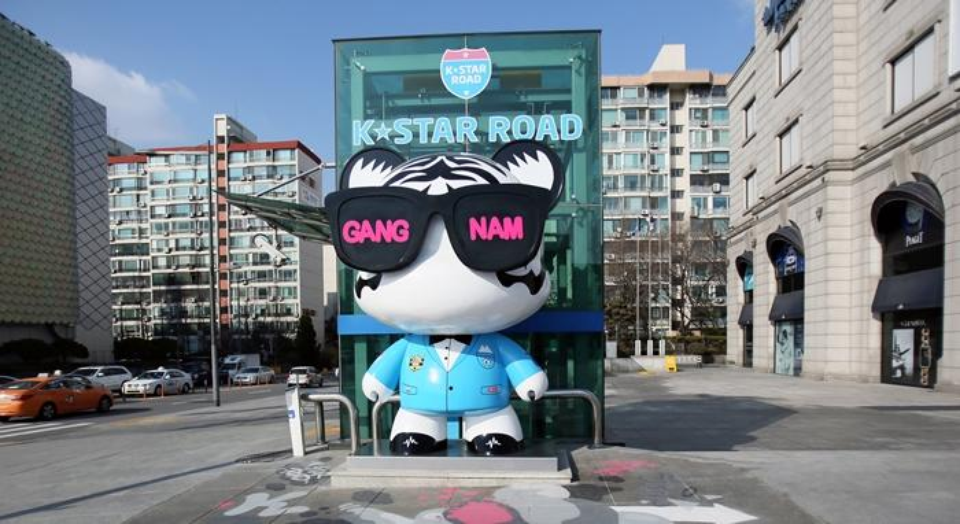
If you’d like a deeper insight into living in Korea as an expat, and some of the challenges and benefits of Korean culture, then check out my guide to expat life in Korea.
Read more:
Living In Korea As An Expat: My Honest Review

Any Alternatives To Teaching In Korea?
There are loads more reasons why you should choose to teach in Korea. However. if you feel like Korea isn’t the best option for you, then there are similar programs in Japan (JET Program) and Hong Kong (NET Program). These programs also place native English speakers into public schools.
I’ve lived in both of those countries, including 3 years on the JET Program in Japan, and have found that EPIK was the best of the three experiences. Not only that, I definitely saved more money teaching in Korea than I did in Hong Kong or Japan. If saving money is a big priority for you, then definitely come and make money teaching in Korea.
There are also teaching positions in many South East Asian countries, such as Vietnam and Thailand, as well as around the world. However, I only have experience in Korea, Japan, and Hong Kong, so I can’t comment on the rest.

How Can I Save $15,000 In 1 Year?
Ok, this is the part that you really want to know about, right? The nitty-gritty details about how to make money teaching in Korea, big money! This title isn’t just an exaggeration, you really can make $15,000 in one year. I know as I’ve done it for the last few years now.
Firstly, I’ll quickly go over the income side of things so you can see where you can make money teaching in Korea. Secondly, I’ll break down the main expenses of living in Korea and give an approximate amount for each one.
Finally, you’ll see how you can make $15,000 teaching in Korea. And, no, this doesn’t involve selling any body parts or weird second jobs on the side.
Note about the exchange rate: Figures for USD are based on an exchange rate of 1,100 KRW (Korean Won) to $1 USD (US Dollars).
The exchange rate changes, but this fixed rate will make it easier to get a sense of the average value in both currencies. You might actually earn more, depending on the exchange rate.

Income Breakdown While Teaching In Korea
Your base salary is just one of the many different parts of how you can make money teaching in Korea. There are many other great bonuses and allowances that actually make your salary even higher. I’ll cover all of these below:
1: Basic Salary – $22,900 USD (25,200,000 KRW) per year
The lowest amount you’re likely to earn is 2,100,000 KRW per month, as per the EPIK pay-scale for people working in most places in Korea. You’ll earn less if you’re in Busan or Incheon, but most people won’t work in those two areas.
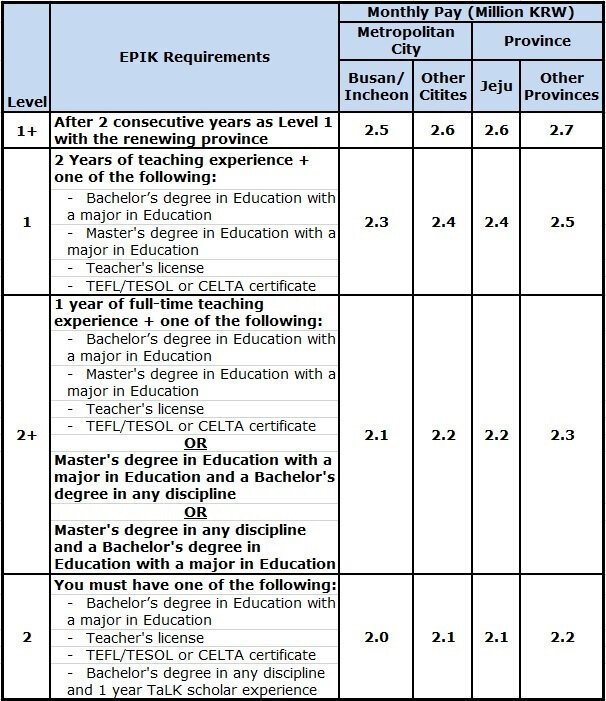
2: Severance Pay $1,900 USD (2,100,000 KRW)
This is really sweet. For every year that you work in Korea, you’ll be given one month’s salary as a bonus! That’s like working for 12 months but being paid for 13! This is really nice and as it comes at the end of your time in Korea you can’t spend it, which makes it easier to save!
3: Flight Allowance Into Korea $1,180 USD (1,300,000 KRW)
To help cover the cost of getting into the country, EPIK will pay you 1,300,000 KRW when you arrive, even if your flight is not that expensive. I flew from Hong Kong and paid about $200 for my flight and pocketed the rest of the money.
4: Flight Allowance Out Of Korea $1,180 USD (1,300,000 KRW)
Yes, another amount for flying home after you’ve finished your time in Korea. You can spend this as you like, as long as you can show that you will fly out of the country. You could book a flight to Thailand after working for a year and spend 6 months backpacking before heading home again.
5: Pension Refund $1,000 USD (1,100,000 KRW)
When you leave Korea, you’re entitled to a refund* of all the pension payments you’ve made so far. You pay 4.5% of your salary and your employer matches that with another 4.5%. This means that you’ll essentially get 4.5% back at the end of your time in Korea (9% total pension – 4.5% you have to pay). I’ve rounded this down to $1,000 USD to make it easier to calculate.
*unfortunately this doesn’t apply to people from the UK or South Africa.
6: Settlement Allowance $270 USD (300,000 KRW)
In your first month in Korea you’ll be given 300,000 KRW to help you settle in and buy some essential items that you need.
7: Overtime: $0 USD (0 KRW)
I’m adding this in here, even though there isn’t a figure here. That’s because teachers can earn overtime money if they teach over their core working hours of 22 lessons per week. I often did in my situation, and it really added a nice bonus to my income, but it’s not normal for most positions. Still, good to know that you can earn it.
Total Income For 1 Year Teaching In Korea
Adding all those up, you now have a total income for 1 year of $28,430 USD, or roughly 31,300,000 KRW. By now you might start to wonder how you can make money teaching in Korea. After all, surely the expenses are going to be really high? Well, let’s take a look at those right now and you can see for yourself.

Expenses Breakdown While Living In Korea
Income is really easy to work out as most people will get the same amount, depending on their salary level. However, expenses are much harder to figure out as everyone has different tastes and expectations.
Therefore, I’m going to do my best to give realistic expenses, assuming that you are focused on saving money and don’t mind cutting a few unnecessary luxuries out. Here are the main things you’ll spend money on while you make money teaching in Korea.
1: Tax: $0 USD (0 KRW) per year
Hold up! No money for tax? Yes, that’s right! Most people that can apply for EPIK don’t have to pay tax for the first 2 years while teaching in Korea. That means you can happily count this as a big, fat $0 USD expense.
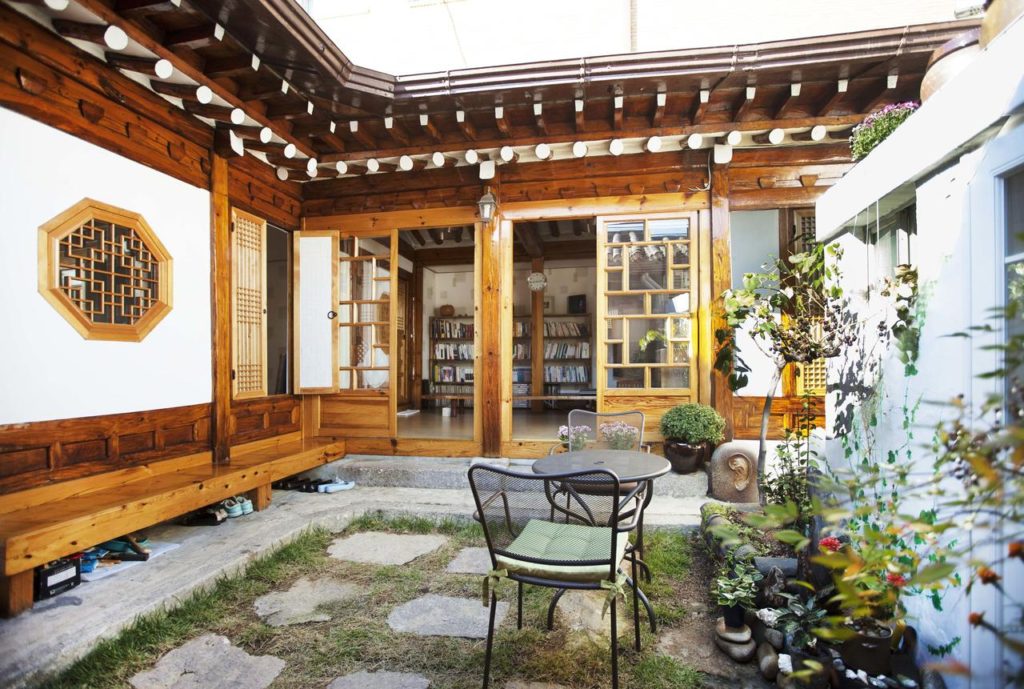
2: Housing: $0 USD (0 KRW)
Another $0 expense? Yes! The great thing about teaching with EPIK is that you’ll be given a furnished apartment when you arrive and you don’t have to pay a penny for it!
Free rent!
This makes a massive difference, especially when rental costs normally take up a big part of most people’s monthly expenses.
If you want to see what an EPIK apartment looks like, check out this YouTube video by a friend of mine, Skycedi, who shows off his apartment in Daejeon.
3: Health Insurance: $810 USD (900,000 KRW) Per Year
Health care in Korea is great and not that expensive. You’ll pay about 75,000 KRW per month for healthcare, but this covers most of your costs when you see a doctor or need medical assistance.
4: Household Bills: $1,800 USD (1,980,000 KRW) Per Year
Household bills include gas, electricity, maintenance, and Internet costs and can honestly vary a lot for each person. They also vary a lot throughout the year. In winter, you’ll spend a lot on gas to heat your apartment, in summer you’ll spend more on air-con to make sure you don’t melt. This amount is based on an average figure of $150 USD (165,000 KRW) per month, but you might pay more or less.
5: Mobile Phone: $325 USD (360,000 KRW) Per Year
Korea, the home of Samsung and LG, has some great mobile phones and super fast 5g mobile internet. Unfortunately, they don’t come cheap. This figure is based on a monthly cost of $27.25 USD (30,000 KRW), which would get you a cheap sim & data package. It also assumes you’ll bring your own phone and not buy one in Korea.
6: School Lunches: $545 USD (600,000 KRW) Per Year
You’re working at a school and so you’ll be allowed to eat the same meals that the students get. The average cost for this is 50,000 KRW per month, but may be higher, depending on the school. School lunches are a great way to get a big meal for not much money and also helps keep a balanced diet with lots of fish and veg.
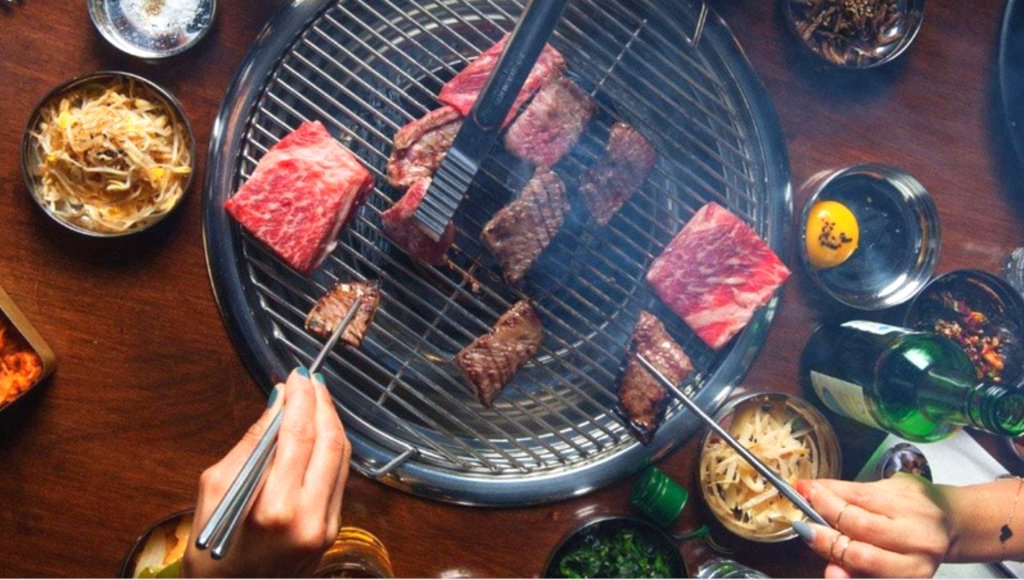
7: Food: $2,725 USD (3,000,000 KRW) Per Year
This is definitely the hardest figure to produce, but one that is possible if you follow these conditions:
- Cook your own food
- Don’t eat out too often
- Eat mostly Korean food when eating out
- Make the most of school meals
- Avoid cafes
If you buy in bulk from large supermarkets and get used to meal prepping for the week ahead (cooking large portions of food and freezing them for later), then you can get by with $227 USD per month (250,000 KRW) for food.
I won’t lie here, I spend a lot more than this, but that’s because I save money in other ways (and I can’t avoid cafes). You can add more to food by travelling less.
8: Entertainment: $1,800 USD (1,980,000 KRW) Per Year
The other almost impossible to predict figure is for entertainment. That covers getting beers in the local bar, watching movies, hanging out with friends, etc. Again, everyone has their own levels of spending for this, the figure I’ve provided is a guide to what you should be spending to be able to save and make money teaching in Korea.
This is based on splashing out $150 USD monthly (165,000 KRW) on entertainment. Again, there are ways to cut this and reduce your expenses.

9: Transportation: $720 USD (792,000 KRW)
EPIK will try to place you near to your school, so your transportation costs could be quite low. However, that’s not always possible, and you might have to take the bus or ride a bike to get to work. The average cost for transportation is $60 USD per month (66,000 KRW), which covers 2 bus rides per day and a little bit more.
That figure includes taking buses or trains to other cities in Korea some weekends. It’s no fun to stay home while you’re in another country, after all. The good news is that trains and buses are super cheap and travelling between cities can cost less than a meal.

10: Travel Within Korea $1,800 USD (1,980,000 KRW) Per Year
It would be a crime to make money teaching in Korea but not spend any of it seeing all the gorgeous places that Korea has to offer. Whether it’s a weekend in Seoul or Busan, a spring break on Jeju Island, or day trips to unique festivals, you’re going to want to travel within Korea. Travel is cheap, you’ll only need $150 USD per month (165,000 KRW).
11: Miscellaneous: $1,200 USD (1,320,000 KRW) Per Year
There are always going to be costs that come up that you don’t expect. The lightbulb blew, there’s a work party that came out of nowhere, someone had a birthday, you need to hoard toilet paper because of a global pandemic – that sort of stuff.
This also covers those small items you need to keep your house clean and stuff you don’t normally budget for. I think $100 USD per month (110,000 KRW) is a good average, based on my experience of living in Korea.
12: Flights Into & Out Of Korea: $1,500 USD (1,650,000)
This can vary a lot, depending on where you’re flying from. However, as most people will come from the US, Europe, or ‘Down Under’, the cost is going to be roughly $750 USD each way. If you plan well, you could pay a lot less and pocket more.
Total Expenses For 1 Year Teaching In Korea
Overall, your expenses for the year can be as low as $13,225 USD (14,560,000 KRW).
Life in Korea is cheap and these are all realistic expenses if you learn to live frugally. You might doubt these figures, but I can assure you that they’re all possible.
Again, you’ll have to make some sacrifices and get used to cutting as many expenses as you can. If you seriously want to make money teaching in Korea, you can find a way to do it. That $15,000 at the end of the year will be a big motivator for you!
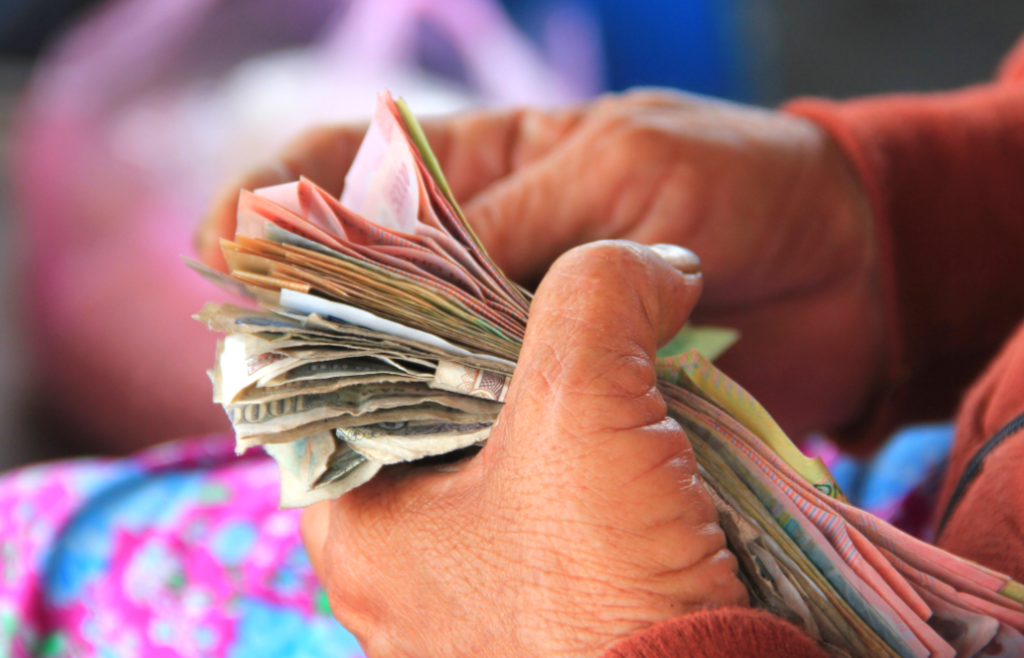
Net Income From Teaching In Korea
Here it is, how you can make $15,000 teaching in Korea!
Income for 1 year: $28,430 USD (31,300,000 KRW)
Expenses for 1 year: $13,225 USD (14,560,000 KRW)
Net Income: $15,225 USD (16,740,000 KRW)
As you can see, you can easily make money teaching in Korea with EPIK – enough to pay for that dream backpacking trip or even a new car or house deposit when you get home. A lot of people choose to teach in Korea to pay off their student loans, too. Whatever your reason, don’t miss this incredible opportunity to make $15,000 teaching in Korea!
Don’t forget you can save $15,000 and still travel around Korea and make the most of this awesome country. If you want to save even more money teaching in Korea, then here are some tips to help you save money in Korea.

Best Tips To Save Money In Korea
Now you know how to make money teaching in Korea, but you might wonder how you can keep your costs so low and still have a fun time. That’s actually one of the things that a lot of people don’t know how to do, and they end up blowing all their income.
Don’t make that mistake. Follow some of these easy tips to save money while living in Korea whilst still exploring and sampling lots.
1: Eat Korean food as much as possible. You’ll miss food from your home country, but it comes at a premium in Korea and you’ll spend a lot more on foreign food.
2: Shop at discount stores such as Emart Traders, Costco, Daiso, and buy in bulk when you do shop.
3: Cook at home and plan your meals in advance. Cook the same dish several nights in a row instead of trying to make something different every night.
4: Learn to love Korean beer or buy foreign beers in bulk to save costs.
5: Go to Club 7/11 (convenience store) for your late night drinking instead of a real club. There are tables outside and you have hot snacks on hand.
6: Take the slow train or cheap bus when you travel. There are fantastic high speed trains, but they’ll cost a lot more.
7: Resist travelling overseas until the end of your time in Korea. I know it’s tempting, but save flight expenses by having one long holiday instead of several small ones.
8: Learn to be low-tech. Use less data and make use of free WiFi so you don’t need to get a really expensive phone plan.
There are many, many other ways you can save money living in Korea. I’ll make another article about those soon.


How To Join EPIK And Make Money Teaching In Korea
So, are you ready to make money teaching in Korea? Already making plans to spend $15,000 travelling from island to island in South East Asia? Then you probably want to know how to join EPIK and start your new teaching adventure in Korea!
Well, good news! I have already written an article all about how to apply for the EPIK program and you can read it with the link below.
Read more:
How To Start Teaching English In Korea With EPIK
How To Make Money Teaching In Korea FAQs
Finally, here’s a few FAQs about how to make money teaching in Korea, in case the above information didn’t cover enough for you.
If you have any more questions, then please feel free to ask me in the comments below.
Can I travel and make money teaching in Korea?
Absolutely. Travel in Korea is relatively cheap and you can take slow trains and buses from city to city. Avoid spending nights in expensive hotels by staying at hostels or a jjimjjilbang (Korean saunas). These can be as low as $10 per night.
You can definitely travel around Korea and still save money. Travelling outside of Korea can be cheap, too. However, search around for the cheapest flights and travel off season to save the most money.
How can I control my monthly costs in Korea?
Controlling monthly costs can be really hard, especially if this is your first time living away from home or in another country. Getting used to a different exchange rate can make things seem cheaper than they really are and you might not realise how much you’re spending.
Personally, I used a diary to record all my expenses each day to identify where I spent the most and then focused on cutting down those costs. Eating at home, eating local food, walking or cycling instead of taking taxis, drinking at home with friends rather than in a bar each weekend, prioritising my spending on things I really wanted, making coffee at home and taking it with me, these are just some of the ways you can control costs and save money in Korea.
Who can teach in Korea?
If you want to make money teaching in Korea with EPIK, then you’ll need to be a citizen of the USA, UK, Ireland, Australia, New Zealand, Canada, or South Africa. You won’t need to have a teaching degree, but you will need a bachelor’s degree and at least a TEFL certificate.
Unfortunately, non-native English speakers can’t apply for the relevant visa (E-2) without being from one of those 7 countries. You can find out more about the requirements to teach in Korea in my in-depth article about applying and working for EPIK.
How long can I teach in Korea?
The minimum contract period for EPIK is one year. It’s rare to get anything longer than a one-year contract unless you have a position at a university or you’ve been working in Korea for a long time. These contracts can be extended and renewing your contract for EPIK is definitely possible. There is no set limit to how long you can teach in Korea and I know several people who have been here for more than a decade.
Is Korea expensive to live in?
Compared to the West, no. Rent is very reasonable, and if you’re teaching with EPIK then you won’t have to pay any rental costs at all. You can enjoy a meal out for less than $5. Transportation is super cheap, with most fares for bus and subway rides just over $1 per trip. Even taxis are cheap. They’re an easy way to waste a lot of money, though.
I’ve found fresh fruit and vegetables are more expensive than I was used to in the UK, and drinking out can be as much, if not more expensive, especially if you’re drinking imported beer. If you want to save money in Korea, you definitely need to live like a local and enjoy Korean food, learn some Korean so you can find bargains, cook for yourself, and try to resist Western comfort food.
What should I know before moving to Korea?
Korea is a very different country from most Western countries, both physically and culturally. The weather is more extreme than you might be used to and its very mountainous. Culturally, there are too many differences to list.
The biggest difference is the group mentality that exists in East Asian cultures, whereby individual liberties you might be used to are sacrificed for the greater harmony of the group. This certainly isn’t a bad thing, but could be shocking when you first arrive. If you want to know more, check out my article about what to know before travelling to Korea.
How can I apply to teach English in Korea?
You can apply to EPIK for their spring and autumn intakes from February (autumn intake) and July (spring intake) each year. The easiest way to apply is with a recruitment company, such as Korvia. You can also apply directly to the EPIK Program through their website. For private teaching jobs in Korea, try sites like Dave’s ESL Cafe and ESL ROK.
You can find out more about the requirements to teach in Korea in my in-depth article about applying and working for EPIK.
Will teaching English in Korea make me rich?
Honestly, probably not. It will give you plenty of cash to go travelling afterwards, or to give you a comfortable life for a few years with lots of holidays in between. It will make you rich in other ways, though. Culturally rich as you learn more about Korea, linguistically rich as you develop another language, and rich in life experiences that can be worth so, so much more than hard cash.
Can you teach English in Korea without a degree?
No. To apply for EPIK or almost all other teaching positions in Korea, you’ll need to have at least a bachelor’s degree and a TEFL certificate. The good news, however, is that you won’t have to have a teaching or English major. I applied with a business degree and was accepted with no problem.
You can find out more about the requirements to teach in Korea in my in-depth article about applying and working for EPIK.
Do I need to speak Korean to teach in Korea?
No, there is no need to be able to speak Korean before you start teaching in Korea. It will be a lot easier to fit in and survive in Korea if you do start learning, though. Learning Korea is also a good idea so that you can travel and live in Korea more easily, and find out more about the country.
Ad – Master Korean With 90 Day Korean
Want to learn Korean before you travel to Korea? Feel like you’d enjoy K-pop, drama, and movies a lot more if you knew what was being said without subtitles? Eager to make Korean friends both online and in Korea?
Then I’d wholeheartedly recommend 90 Day Korean to help you study Korean wherever you are in the world. Their great courses are tailored to language learning needs at any level.
Featuring weekly lessons, exciting challenges, native-Korean proofreading, email support, regular tests, and lots, lots more. You’ll master essential Korean language in no time and make lots of Korean friends.
Read more:
Start Learning With 90 Day Korean Now
Liked this? Pin It For Others
If you enjoyed reading this article, then please go ahead and share this with your friends on Pinterest.
You Might Also Like:
Here are some other great articles that you might want to read about travelling in Korea. Remember, if you have any questions about anything, please feel free to post a comment or join the Korea Travel Advice Facebook Group.







Can a non native speaker teach English in South Korea? If so, how? What are the requirements?
Hi,
Unfortunately it’s not possible to get the required work visa (E-2 visa) to teach in Korea unless you’re from one of the 7 English native-speaking countries recognised by Korea (USA, UK, S. Africa, Australia, NZ, Canada, Ireland).
However, I have seen people who are non-native English speakers get jobs in places like the Paju English Village. They employ people on an E-6 visa, which is for entertainers (which is what teaching is half the time).
I’m not sure that this is common, though. I think they get away with hiring people for teaching as they’re teaching drama and arts in English, instead of teaching English directly. And there certainly aren’t many jobs available that don’t require the standard work visas (E-2).
You could ask for some more advice from Facebook groups for teaching in Korea, like this one – Teaching Jobs In Korea
Hello,
I have a question. Am I able to be part of the EPIK if I don’t live in one of the country, but have a teacher degree? If not how can I be a teacher in Korea with degree?
I really love the article
Thank you ????
Hi, unfortunately you can’t be an EPIK teacher unless you’re from one of the countries mentioned. It’s a requirement for the visa that you should be from a native-speaking English country. It’s not really fair, tbh.
If you speak a different language natively, there may be some non-EPIK teaching positions in that language in the international schools.